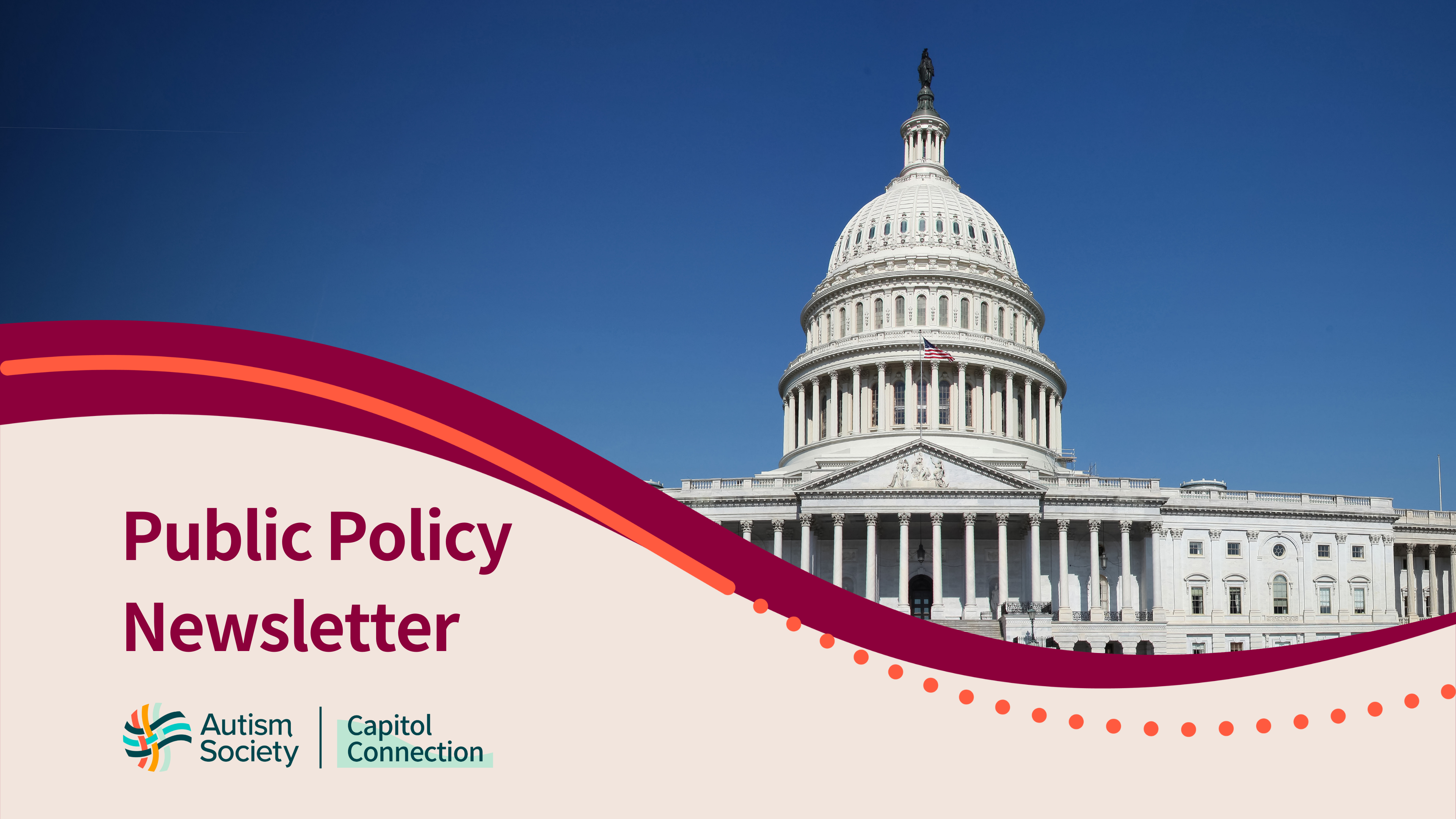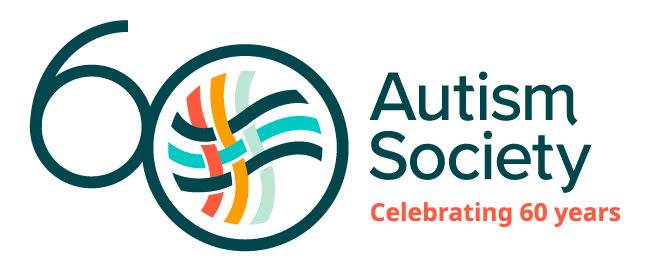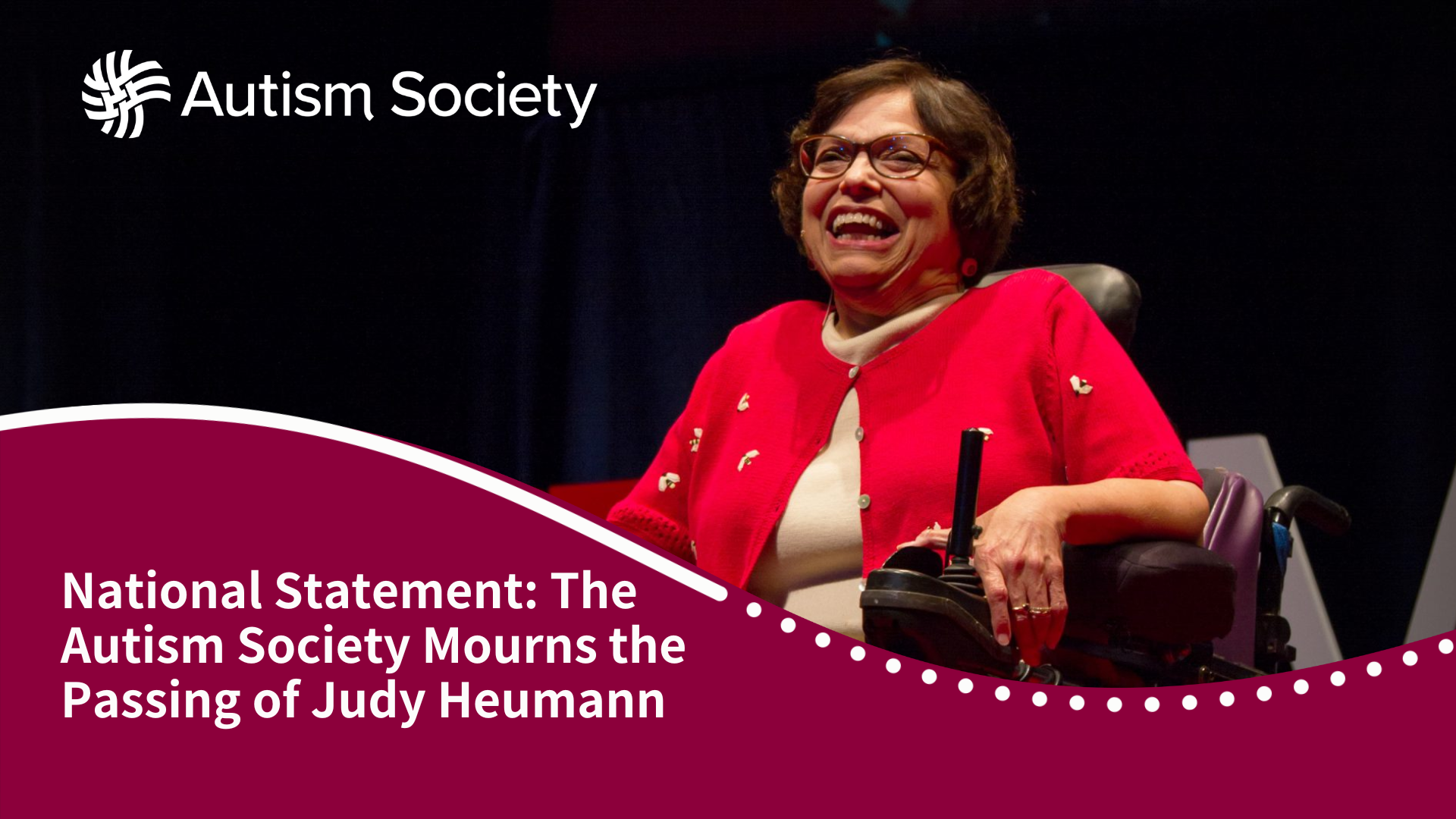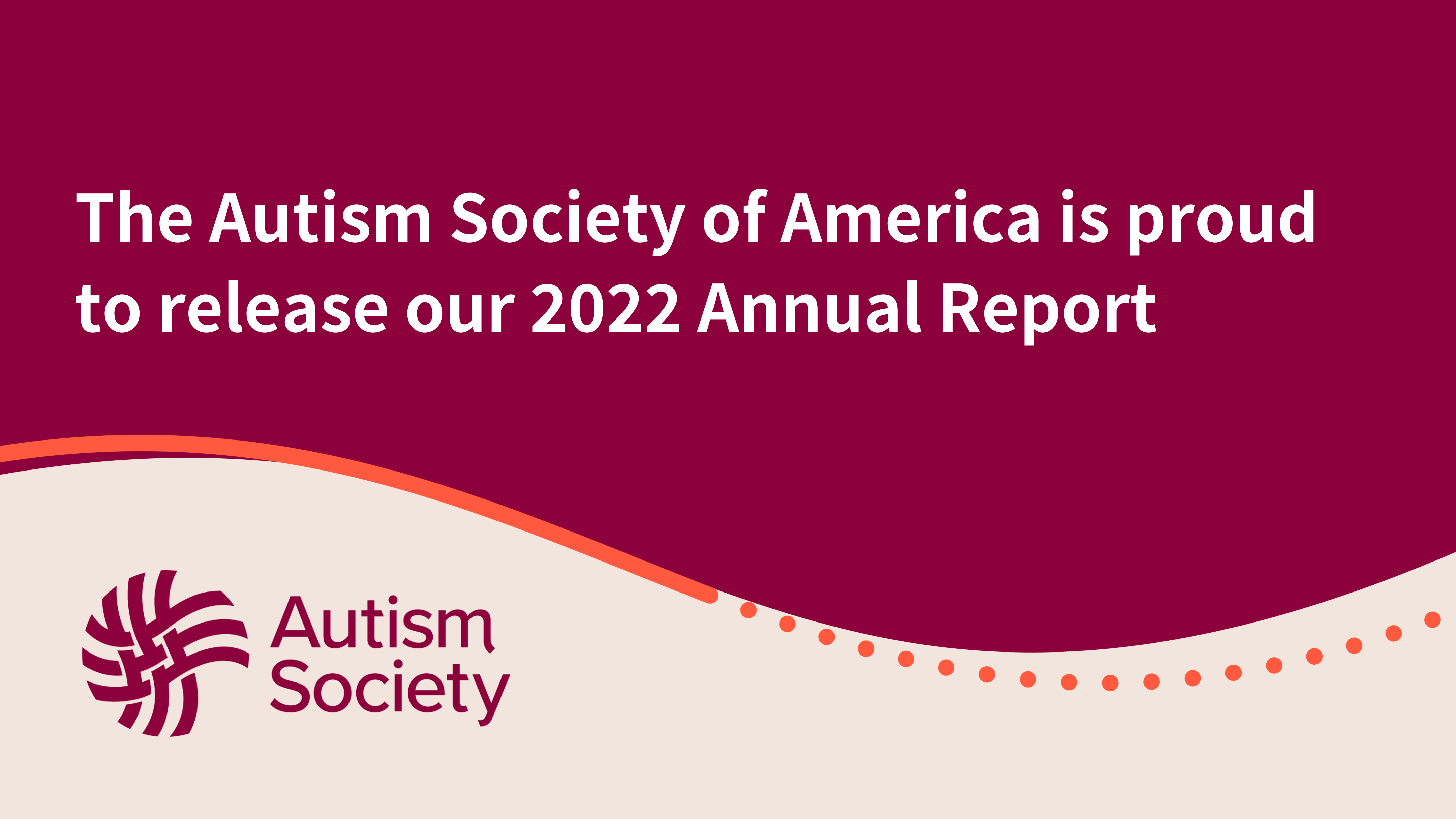
In this issue of Capitol Connection, find a summary analysis of the recently enacted Fiscal Year 2022 appropriations bill and how it affects programs relevant to the Autism community. In addition, find updates regarding the upcoming Disability Policy Seminar, health equity legislation, a request for public comments about Medicaid and CHIP, and DOJ guidance on ADA webpage accessibility. We look forward to seeing some of you in Washington next week!
Disability Policy Seminar
It’s not too late to register for the Disability Policy Seminar coming up March 28-30 in Washington, DC. The opening panel on Monday features HHS Secretary Xavier Becerra and other members of the Administration from the Departments of Justice, Labor, and Education to hear about their disability priorities. Participants will also hear from congressional staff on issues related to employment, education, criminal justice and safety, community-based services, appropriations, voting, and Social Security Make your appointments for Hill visits set for March 30. Fact sheets on topics we are prioritizing are on the DPS website. If you need assistance with Hill visits, please contact Delancy Allred.
Final 2022 Omnibus Appropriations Bill is Signed
On March 15, President Biden signed an omnibus spending bill (combining all 12 annual funding bills) for the fiscal year 2022 that began five months ago (October 1). This avoided a year-long continuing resolution at level funding. While many programs that support people with autism and families received slight increases, the final compromise bill did not include many of the significant increases contained in the House-passed bill. The combination of the smaller increases in this final bill and the stalled Build Back Better Act means that there continue to be significant unmet needs for people with Autism and their families. See the full Table comparing key programs within the Departments of Labor, Health and Human Services, and Education (L-HHS-ED) followed by the Autism Society and a summary below.
HHS
The Autism CARES Act program that provides interdisciplinary training to health professionals and develops evidence-based services received a $4 million increase in the President’s Budget and the House-passed bill. The final bill only provided a $1 million increase for this important activity. Developmental Disabilities Act programs (Protection and Advocacy and DD Councils) each received a $1 million increase and the University Centers were level-funded, much smaller than the House-passed bill. Small increases were also provided to family caregiver programs – an additional $1 million for the Lifespan Respite Care Act and a small $500,000 for the National Family Caregivers Program. The bill also includes $400,00 for the RAISE Act Family Caregiving Advisory Council to continue working on a federal National Family Caregiver Strategy.
Education
The agreement includes an increase of almost $400 million (to $13.3 billion) for special education state grant programs under the Individuals with Disabilities Education Act (IDEA); an additional $14 million for the Part C early intervention program and plus $12 million for preschool grants. Personnel preparation programs only received a $5 million increase even when the special education teacher shortage is in crisis. Transition and Postsecondary Education Programs for Students with Intellectual Disabilities (TPSID) that support people with intellectual disabilities at community colleges and universities received level funding at $14 million. Supported employment grants that provide assistance also received flat funding at $23 million.
| FY 2022 Funding Request for the Departments of Labor, HHS, Education and Justice
(in millions) |
|||||
| FY 2021 Enacted | President FY 2022 Request | FY 2022 House Appropriation Request | FY 22 Enacted | Difference between FY 2021 and 2022 Final | |
| Department of Health and Human Services | |||||
| University Centers (UCEDD) | 42.0 | 47.0 | 47.0 | 42.0 | 0.0 |
| Projects of National Significance | 8.0 | 13.0 | 13.0 | 8.5 | +0.5 |
| DD Councils | 79.0 | 89.0 | 88.5 | 80.0 | +1.0 |
| Protection & Advocacy | 42.0 | 47.0 | 47.0 | 43.0 | +1.0 |
| Lifespan Respite Act | 7.0 | 14.0 | 14.0 | 8.0 | +1.0 |
| National Family Caregivers | 189.0 | 250.0 | 250.0 | 194.0 | +0.5 |
| Health Resources and Services Administration (HRSA) | |||||
| Maternal and Child Health Block Grant | 712.7 | 592 | 869.0 | 748.0 | +35.3 |
| Autism CARES | 53.0 | 57.0 | 57.0 | 54.0 | +1.0 |
| Centers for Disease Control and Prevention (CDC) | |||||
| Center on Birth Defects and DD (NCBDDD) | 168.0 | 173.0 | 187.0 | 177.0 | +9.0 |
| NIH | 43,000.0 | 52,000.0 | 49,424.0 | 45,000.0 | +2,000.0 |
| NICHD | 1,590.0 | 1,942.0 | 1,690.0 | 1,683.0 | +93.0 |
| Department of Education | |||||
| IDEA Part B | 12,937.5 | 16,000.0 | 16,000.0 | 13,300.0 | +362.5 |
| Part C Early Intervention | 482.0 | 732.0 | 732.0 | 496.0 | +14.0 |
| Preschool Grants | 397.6 | 502.6 | 502.6 | 409.5 | +12.0 |
| IDEA Part D programs: | |||||
| State Personnel Development | 38.6 | 39.0 | 39.0 | 38.6 | 0.0 |
| Technical Assistance | 44.0 | 49.0 | 49.0 | 44.0 | 0.0 |
| Personnel Preparation | 90.0 | 250.0 | 250.0 | 95.0 | +5.0 |
| Parent Information Centers | 27.0 | 30.0 | 30.0 | 30.0 | +3.0 |
| Education technology | 30.0 | 30.0 | 31.5 | 30.0 | 0.0 |
| Postsecondary Program for ID | 14.0 | 15.0 | 15.0 | 14.0 | 0.0 |
| Supported Employment | 23.0 | 23.0 | 23.0 | 23.0 | 0.0 |
| Department of Justice | |||||
| Kevin and Avonte’s Law | 3.0 | 3.0 | 3.0 | 3.0 | 0.0 |
Department of Justice
Kevin and Avonte’s Law, a DOJ program that provides grants to states to promote initiatives intended to reduce the risk of injury or death relating to the wandering or elopement of children and adults with autism, was level-funded at $3 million.
Mental Health
The final appropriations bill acknowledges the mental health difficulties of the nation by including significantly increased funding to improve mental health access, including funding for the crisis care system. These investments include $315 million for Certified Community Behavioral Health Clinics, a $65 million increase; $858 million for the Mental Health Block Grant, a $100 million increase (with a 5 percent set aside for states to create crisis care programs); a new, $10 million grant program for crisis response; $102 million—a $78 million increase—for the Suicide Prevention Lifeline to successfully transition to the 988 hotline in July; $5 million for the new Behavioral Health Crisis and 988 Coordinating Office at HHS; $10 million for infant and early childhood mental health, a $2 million increase; and $120 million—a $13 million increase—for Project AWARE, to expand efforts to identify and help children and youth in need of mental health care. The bill also invests $111 million, an increase of $90 million, for Department of Education programs designed to increase the availability of mental health services in schools (e.g.training programs to prepare new school counselors, social workers, and psychologists). President Biden also emphasized mental health in his March 1 State of the Union address where he outlined a plan to address the urgent needs.
Unfortunately, Congress did not include any supplemental COVID funding in the omnibus spending package. The White House released a factsheet on the consequences if Congress does not approve supplemental funding, including that the federal government will not be able to maintain access to free vaccines and testing or fund the new test-to-treat program.
The President is expected to announce his Budget Request for the next Fiscal Year 2023 within the next two weeks. The Autism Society will be reviewing and sharing analysis in the next edition of Capitol Connection.
HCBS Hearing
Chairman Bob Casey and Ranking Member Tim Scott (R-SC) held a hearing in the Senate Special Aging Committee on March 23 titled “An Economy That Cares: The Importance of Home-Based Services.” The hearing examined how expanded access to home and community-based services will provide financial relief for American families and enable caregivers to get back to work. The Autism Society of America provided a statement for the hearing record encouraging Congress to pass the Better Care Better Jobs Act. See also a new issue brief from the Community Living Center outlining how increasing Medicaid HCBS helps families financially.
Upcoming Hearings
The Senate held two other hearings of interest. The first hearing was held by the Senate Health Education, Labor and Pensions (HELP) Committee on March 22 is titled, “Child Care and Preschool: Cutting Costs for Working Families.” The HELP Committee will also hold another hearing on March 23, called “Strengthening Federal Mental Health and Substance Use Disorder Programs: Opportunities, Challenges, and Emerging Issues.”
Competitive Integrated Employment Grant
The U.S. Department of Education’s Rehabilitation Services Administration (RSA) is seeking applications for the Subminimum Wage to Competitive Integrated Employment (SWTCIE) demonstration project. The project offers $167 million available to 18 State Vocational Rehabilitation agencies and their partners to transition to CIE and increase access for people with disabilities to jobs that pay good wages. The new grant program will sponsor innovative approaches that allow people with disabilities to successfully secure jobs working alongside their non-disabled peers while earning the same pay. The Department’s Rehabilitation Services Administration webpage provides additional information about vocational rehabilitation opportunities for people with disabilities. The Applications are available in the Federal Register. The deadline for submissions is June 21, 2022.
Health Equity
The Autism Society participated in a meeting among the CCD DD/Autism Task Force and the National Council on Disabilities (NCD) to discuss NCD’s recent report with recommendations to Congress on improving health equity for people with disabilities. The recommendations include support of the Healthcare Equity Accessibility for Developmentally Disable and Underserved (HEADs) Up Act, a bill long supported by the Autism Society. This bipartisan bill directs the Health Resources Services Administration to designate people with IDD as a medically underserved population (MUP), which would lead to more health professionals being trained to care for these individuals.
PREVENT Pandemics Act
Earlier this month, Senator Patty Murray (D-WA) and Senator Richard Burr (R-NC) introduced the Prepare for and Respond to Existing Viruses, Emerging New Threats, and Pandemics Act (PREVENT Pandemics Act). This bill builds stronger public health systems to ensure a better and more timely response in case of a future pandemic. This includes expanding access to medically necessary supplies such as masks and tests, improving data collection methods and data standards on pandemic prevalence and demographics, improving resources in behavioral health support and substance use support and establishing a federal committee to distribute accurate, current, and trustworthy public health information. The bill was marked up on March 15, and all committee members involved stressed the importance of improving resources based on previous shortcomings during the pandemic for marginalized communities, specifically people with disabilities, and people of color. It was also pointed out that the FY 22 final Omnibus spending bill omitted important funding related to preventing future outbreaks. Autism Society of America will continue to monitor the bill.
Public Comments for Medicaid and CHIP
The federal Centers for Medicare and Medicaid Services (CMS) released a Request for Information to gather more on issues and barriers individuals face to access Medicaid and CHIP covered services, including long-term services and supports (LTSS), which include institutional care and home and community-based services (HCBS). This is the first step CMS is taking to develop its strategy to ensure more equitable access. Submit comments here until April 18, 2022.
ADA and Web Accessibility
On March 21, the U.S. Department of Justice (DOJ) published guidance on web accessibility and the Americans with Disabilities Act (ADA) to inform state and local governments and businesses open to the public on how to ensure their websites are accessible to people with disabilities. This guidance uses plain language and clear examples to review Title II and Title III of the ADA, the importance of web accessibility, barriers that inaccessible websites create for some people with disabilities, requirements of the ADA to web content, and tips on making web content accessible.
President’s Committee for People with Intellectual Disabilities
On March 11, 2022, President Biden released a statement detailing his appointments for the President’s Committee for People With Intellectual Disabilities. President Biden’s chosen members provide a diverse spectrum of experience with intellectual disability; included in the list are self-advocates, service providers in the fields of disability and mental health, and other prominent disability leaders. This Committee will work with the President to advise the Secretary of Health and Human Services in matters relating to intellectual disability. This Committee will be historic in prioritizing stakeholder voices within the community of those with intellectual disabilities.
Case for Inclusion report
ANCOR and UCP released the latest edition of the Case for Inclusion, an annual report analyzing data of the IDD community and the needs regarding independence, health, and quality of life. Data shows that the waitlist for Home and Community-Based Services (HCBS) growing to over 117,000 since 2020 with 590,000 people currently waiting. More than 78% of those on the list live in Texas, Ohio, Louisiana, Florida, and Illinois. In addition, data shows that out of all those with IDD who are receiving employment or day supports, only 25% are participating in integrated employment. Feel free to use this data as you educate state and federal policymakers about needed investments in disability support systems.
*Please also see the previous March 10 issue of Capitol Connection for other recent news and resources that may be of interest.*
Share:







